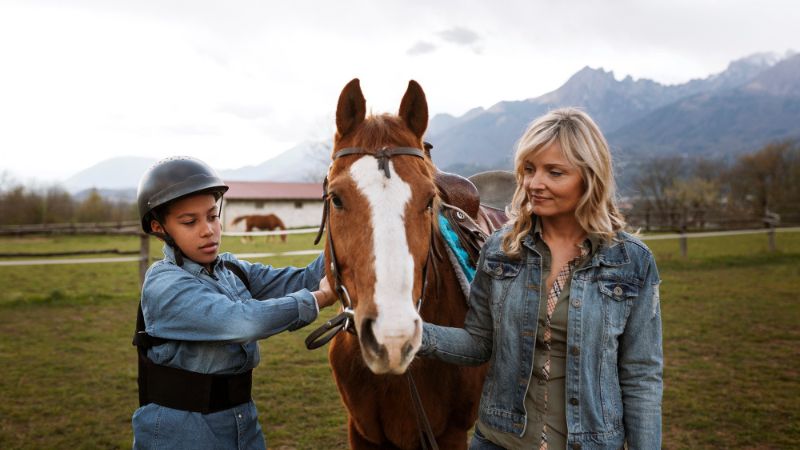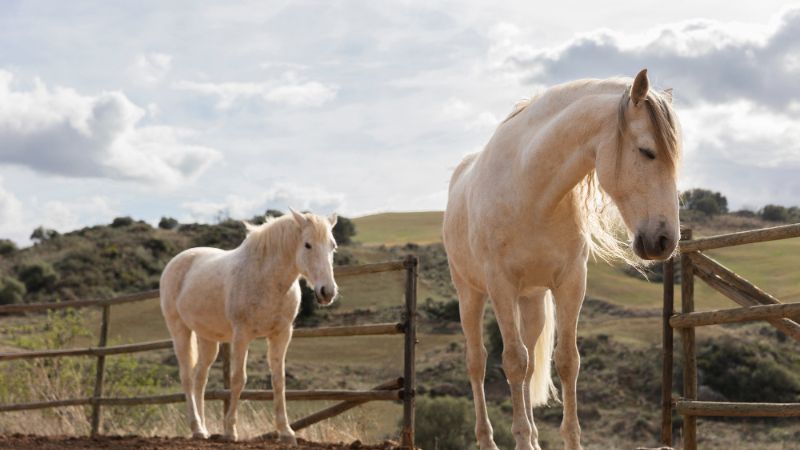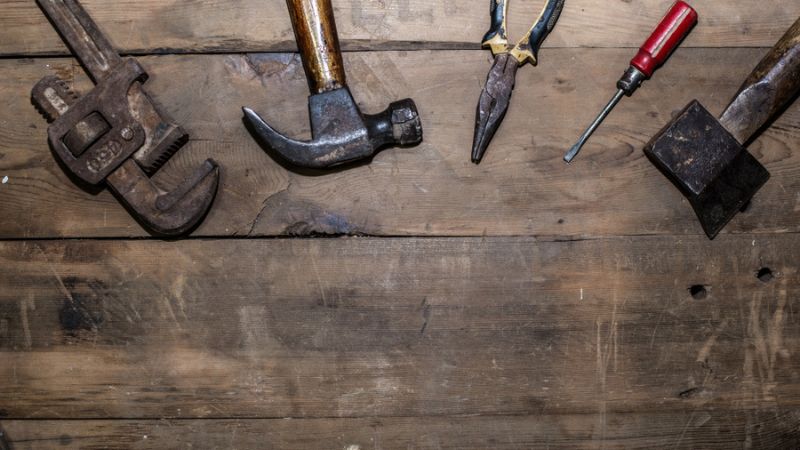Importance of protein in cutting horse diets – Cutting horses, renowned for their agility and precision in separating cattle from herds, require meticulous care and optimal nutrition to excel in their demanding sport. Nutrition plays a pivotal role in the health and performance of equine athletes, with protein standing out as a crucial component in their diets.
As primary building blocks for muscle tissue, proteins are indispensable for cutting horses, ensuring their strength, endurance, and overall athletic prowess. Understanding the unique nutritional needs of these horses is imperative to provide them with the best care and support for peak performance.
In this discourse, we delve into the significance of protein in cutting horse diets, exploring its multifaceted roles in muscle development, energy production, and immune function.
By elucidating the protein requirements, sources, and feeding management practices tailored to cutting horses, we aim to underscore the importance of optimal nutrition in nurturing these remarkable athletes and enhancing their competitive edge on the field.
Importance of protein in cutting horse diets
Muscle Maintenance:
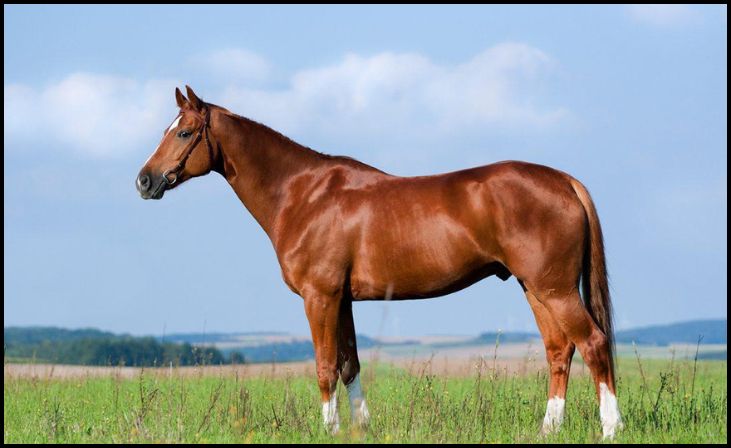
Cutting horses rely heavily on their muscle strength and agility to perform precise maneuvers during competitions. Protein is essential for maintaining the integrity and functionality of these muscles. Without an adequate protein intake, muscles may deteriorate, leading to decreased performance and increased risk of injury.
By ensuring that cutting horses receive sufficient protein in their diets, owners and trainers can help support muscle maintenance and maximize the horse’s athletic potential.
Also Read – Best Diet For Cutting Horse Performance
Muscle Repair:
The demanding nature of cutting competitions can result in micro-tears and damage to muscle fibers. Protein serves as the building blocks necessary for repairing and rebuilding these muscles.
After intense training sessions or competitions, providing a protein-rich meal or supplement can expedite the recovery process, allowing the horse to bounce back quicker and maintain peak performance levels.
Energy Production:
While carbohydrates are the primary source of energy for horses, protein can also contribute to energy production, particularly during prolonged exercise or when carbohydrate stores are depleted.
By undergoing gluconeogenesis, certain amino acids from protein can be converted into glucose, providing a supplementary energy source for the horse’s muscles.
This dual energy pathway ensures that cutting horses have the fuel they need to sustain their performance throughout the duration of a competition.
Amino Acid Provision:
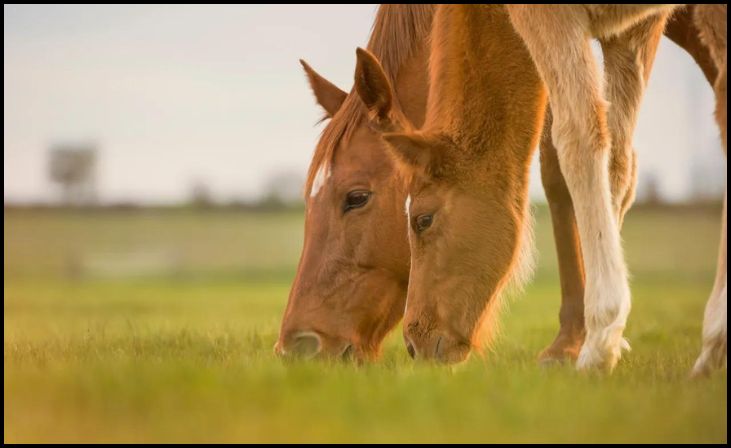
Amino acids are the fundamental components of proteins, and they play crucial roles in various physiological processes within the horse’s body. Some amino acids, known as essential amino acids, cannot be synthesized by the horse and must be obtained through the diet.
These essential amino acids are vital for muscle synthesis, repair, and overall health. By providing a balanced diet rich in high-quality protein sources, owners can ensure that cutting horses receive the full spectrum of amino acids necessary for optimal performance.
Support for Connective Tissues:
In addition to muscle health, protein also plays a critical role in supporting the integrity of connective tissues such as tendons, ligaments, and cartilage. Cutting horses subject their joints and soft tissues to significant stress during abrupt stops and sharp turns.
Adequate protein intake ensures that these tissues remain strong and resilient, reducing the risk of injuries such as strains, sprains, or tears. By prioritizing protein-rich feeds and supplements, owners can help safeguard the structural integrity of their horse’s musculoskeletal system.
Immune Function:
The demanding training regimen and frequent travel associated with cutting competitions can take a toll on the horse’s immune system, potentially increasing their susceptibility to infections and illnesses. Protein is essential for the production of antibodies and immune cells, helping to bolster the horse’s natural defenses against pathogens.
By incorporating protein-rich ingredients such as legumes, soybean meal, or high-quality forages into the horse’s diet, owners can support optimal immune function and help keep their cutting horses healthy and thriving.
Satiety and Weight Management:
Maintaining an ideal body condition is crucial for cutting horses, as excess weight can impair agility and performance. Protein-rich diets have been shown to promote satiety and reduce overall calorie intake, making them valuable tools for weight management.
By prioritizing protein sources with a high biological value and incorporating them into a well-balanced feeding program, owners can help their cutting horses achieve and maintain a healthy body weight without sacrificing muscle mass or energy levels.
Hormone Regulation:
Hormones play a pivotal role in regulating various physiological processes, including metabolism, growth, and stress response. Protein is essential for the synthesis and function of hormones within the horse’s body. By ensuring adequate protein intake, owners can support proper hormone balance, which is crucial for maintaining overall health and optimizing performance.
Whether it’s the growth hormone supporting muscle development or cortisol regulating stress responses, a balanced protein diet contributes to the harmonious functioning of the endocrine system in cutting horses.
Enzyme Function:
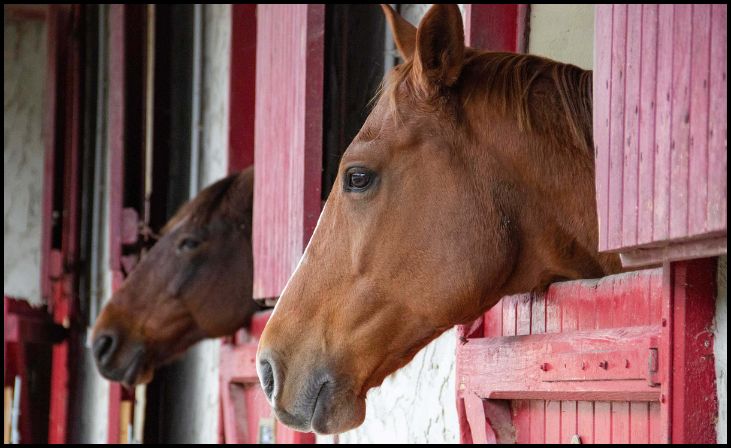
Enzymes are biological catalysts that facilitate essential biochemical reactions within the horse’s body, ranging from digestion to energy metabolism. Many enzymes are composed of proteins, and their activity depends on the availability of specific amino acids.
By providing a diet rich in protein, owners can ensure that cutting horses have an ample supply of these essential building blocks, promoting optimal enzyme function and facilitating efficient nutrient digestion, absorption, and utilization. This, in turn, enhances overall metabolic efficiency and supports the horse’s energy requirements during intense training and competition periods.
Feather in the Cap:
In the competitive world of cutting, every advantage counts. Ensuring that cutting horses receive a nutritionally balanced diet, including adequate protein, can serve as a strategic advantage for owners and trainers.
By meeting the horse’s specific dietary needs, including protein requirements for muscle development and maintenance, owners can instill confidence in their horse’s overall well-being and readiness to perform at their best.
A protein-rich diet acts as a foundational element in the horse’s preparation, complementing their training regimen and contributing to their competitive edge on the arena floor.
Conclusion
Conclusion: In conclusion, protein stands as a cornerstone in the diets of cutting horses, indispensable for their muscle development, energy levels, and immune function. By prioritizing protein intake and implementing sound feeding management practices, owners and trainers can ensure the optimal health and performance of these remarkable athletes.
Recognizing the pivotal role of nutrition in supporting cutting horse excellence underscores the importance of tailored dietary strategies. Let us continue to uphold the significance of proper nutrition, thereby empowering cutting horses to reach their full potential in the arena and beyond.
FAQs
Why is protein essential for cutting horses?
Protein is crucial for muscle development, energy production, and immune function, all of which are vital for cutting horses to perform at their best.
What are the signs of protein deficiency in cutting horses?
Signs may include poor muscle development, decreased energy levels, slow recovery from exercise, and compromised immune function.


